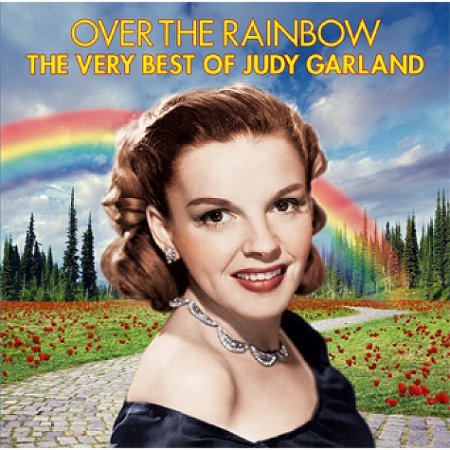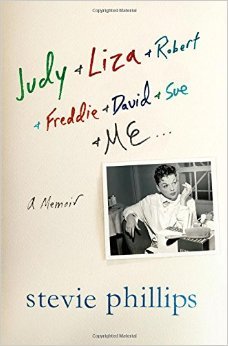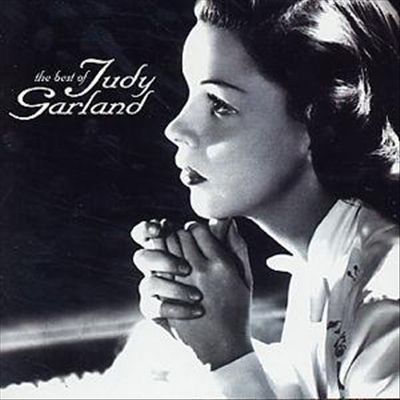Even by Hollywood standards, the majesty and misery of Judy Garland's short life was extreme, defined by its operatic intensity and an epic series of (mostly) public peaks and valleys. As we approach the forty-sixth anniversary of her passing (June 22), the Judy Garland story arc remains the gold standard of show business tragedies -- created song by song, pill by pill, comeback by comeback, trope by trope -- to which all other show business tragedies should forever be compared.
There has been a huge canon of written material in the intervening years, some by those who bore witness (Mel Tormé, Lorna Luft) and some by well-intentioned Garland apologists who, for reasons of their own, ask us to believe only what was good and leave anything negative out of the narrative. Those keepers of the myth, whom I refer to as the "Judy police," are like the climate change deniers of show business. To them Garland is Dorothy Gale, a symbol of innocence, an entertainer possessing preternatural gifts who must remain the ultimate victim. But to those apologists, any suggestion that Garland was an infinitely more complicated person (even a first person account), is met with vitriol that would make the Wicked Witch of the East green(er) with envy.
Because so many years have passed, I was actually quite surprised to learn that there is someone alive with a first-hand Judy Garland story that has never been told, but there is. Her name is Stevie Phillips and her narrative cuts right through the revisionist bullshit and gets at something far more interesting: a portrait of Garland filled with contradictions and flaws that actually restores Judy's humanity at the same it relates some rather sensational (and terrible) things she did. On June 2, St. Martin's Press published Phillips' Judy + Liza + Robert + Freddie + David + Sue + Me, and trust me, her memoir is much more deftly crafted than its cumbersome title.
Facts are facts, but "the truth" is mutable and can be shaped into whatever narrative we want (or need) to suit our purposes. People who worship idols have their own peculiar psychology and oftentimes will not brook anything that deviates from their truth, facts be damned. As any reasonable person not invested in whitewashing the facts well knows (this includes Stevie Phillips), Judy Garland was nothing if not a study in contradictions: gifted beyond all measure but utterly lacking confidence; a supremely self-centered child-woman who, paradoxically, seemed to lack an actual self; a funny, quick-witted woman who made the world cry for a living. Why deny a great tortured artist the complexity that defined her?
This is a good moment to share that I am big Judy Garland fan. I believe she was an entertainer virtually without peer as well as a fascinating person. I embrace the totality of all the good and the bad qualities that were stuffed in that hot air balloon bound for Kansas, informing the dreams of generations of people around the world as it rose above the Emerald City (not just gay dreamers, by the way). But I do not believe a one-dimensional version of her story. Here are a few other things I believe: that Judy Garland was extremely troubled, but also that she caused a lot of trouble; that everyone who loved her probably tried to help her; that Louis B. Mayer did not want to lose his greatest asset; that Judy was taken advantage of but was exceedingly capable of taking advantage; that in the end Judy destroyed herself because of reasons as baffling and complicated as addiction itself. These are my opinions.
Stevie Phillips began her career in the early 1960s when, as a young woman, she went to work for two of the most important and famous agents in New York, Freddie Fields and David Begelman, (in the case of Begelman, that should be "infamous"). Their star client was Judy Garland who, being Garland, was simultaneously the most gifted person in show business and the client from hell. Phillips soon found herself stuck with a Sisyphean task: being Judy Garland's day-to-day person, responsible for getting her where she needed to be in condition to work. Per Phillips' story, it seemed exhilarating at first, but soon became impossible, then traumatic. Phillips reveals personal information about Garland's sexuality where others have only speculated. She also relates the bizarre and crazy details of Judy's final big comeback before beginning the final descent.
Since I originally wrote about the book a few weeks ago in Stargayzing, the Judy police have come after me. They've called me names on Twitter (Scumbag! Graverobber!) and accused me and Miss Phillips (whom I've never met) of money grabbing. None of the Judy police have read the book, though several have threatened to burn it! (I should add I've never made a cent off my blog or been compensated for contributing here).
But I believe the veracity of Miss Phillips' story because it feels true. Having worked in the entertainment business since I was very young, I can say with complete confidence that there is no awful thing you can imagine that does not actually happen in the parallel universe of celebrity. I identify with Stevie Phillips because I have lived "just outside the spotlight" for most of my life. This is the main theme of my blog Stargayzing and one of the defining motifs of my own narrative, such as it is. Though my only objective is to express myself and to promote an exchange of ideas, I've found this can be challenging when you're dealing with a cult of personality that doesn't permit critical thought but does encourage revisionist history.
From personal experience I know that living inside the bubble of a star's narcissism, though initially very exciting, is surprisingly noisy and airless. Once there you will soon lose the ability to hear your own voice. Working with stars is almost always a Faustian deal. I understand, as Phillips perceptively notes, how childhood trauma breeds pathological ambition; how you get roped into abusive relationships with bosses who you both love and hate; how it gets so blurry that you don't know where their life ends and yours begins. It doesn't matter whether it is Kurt Cobain, Elvis Presley, Whitney Houston or Michael Jackson, where there are drugs, idolatry and fame, there is some iteration of the "Judy Garland story."
Stevie Phillips enters the Garland narrative in its tawdry, final act, when even Judy apologists struggle to manipulate the facts. By that time, Judy Garland (the person), was a sad, lonely lady with advanced addiction issues struggling to make a living and blaming everyone else for her troubles (reference the late night drunken autobiography tapes for proof). This is classic addict stuff. According to Phillips, who survived the psychodrama of being Judy's de-facto personal assistant to become a highly regarded talent manager and film producer with a long list of credits, (hence the book's clunky title), life with Judy in the early-1960s made for a pretty harrowing coming-of-age story.
Phillips communicates both the good and the bad with great empathy and respect and refreshing regard for the facts. This has, no doubt, pissed some people off. Here's my take: it's 2015 and unless you're a TCM junkie, a gay man over 40, or a young musical theater kid, nobody really cares anymore. The piano bars are gone and young, assimilated gay men have no need for the Judy Garland victim narrative. I'm told that upon coming out, gay men no longer automatically receive a commemorative copy of Judy Garland at Carnegie Hall upon coming out. Like water at a restaurant in California, you have to ask for it. (I'm joking, but only a little).
Here is an alternative theory: in this era of reduced attention spans, reality TV and auto-tuned singers who are really talentless strippers, Phillips' salacious stories are Judy's best chance for continued survival with millennial homosexuals. They still get Joan Crawford, but only as she is filtered through the Mommie Dearest lens. You probably won't find young gay men watching Sadie Thompson. Sadly, to many of them, Garland's singing sounds like Jeanette MacDonald did to me: formal, fussy, arcane, corny. Don't believe me? Try playing "The Trolley Song" for a young gay kid who isn't into Broadway: total disconnect. They grew up listening to Britney Spears and Beyonce and this, my friends, is what we're up against. After a life of stunning achievement that, one thought, would have cemented her status as an icon for perpetuity, the demographics appear to be against the Garland legacy's survival. Is it possible that the legend of Judy Garland may now actually depend on not obfuscating the facts so Judy can remain America's symbol of innocence?
After Garland's death, Phillips, who clearly had the stomach for this sort of thing, became a first-tier manager and producer herself, whose star clients were Liza Minnelli and Robert Redford, whom Phillips represented during their biggest years. There is some great post-Garland material in the book as well (we all must give Liza tremendous credit for her incredible survival skills), but it's the Garland stuff that resonates most.
In the end, this is Stevie Phillips' story, expressed with humor and a surprising amount of humility for a Hollywood power broker. Some may not want to believe that, say, Judy Garland accidentally lit herself on fire and Phillips had to "put her out," and what that conflagration might say about who Judy Garland really was, but it's Stevie's narrative and it belongs to her. We are all free to draw our own conclusions.
A version of this piece appeared in Stargayzing.com
Sign up for Peacock to stream NBCU shows.
to stream NBCU shows.



